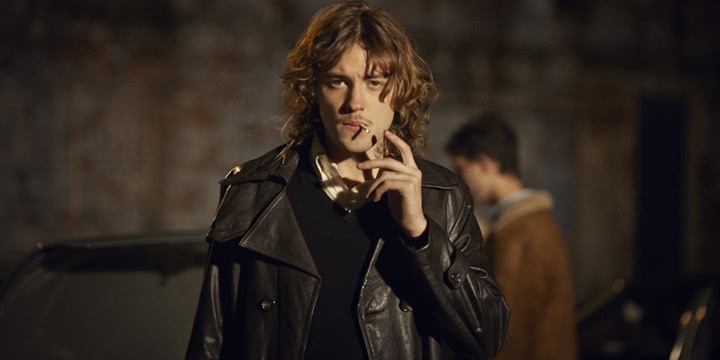Elaine Constantine has one of the most chipper voices you’re likely to hear first thing in the morning (it doesn’t hurt that she has a particularly colourful Lancashire accent). Having established herself as a much-lauded photographer during the ’90s – known for her rejection of supermodels in favour of everyday youth – she has now plunged into another kind of eidetics altogether with her film Northern Soul, an ode to the arrival of American soul music into 1960s and ’70s Britain.
Though clearly a labour of love for Constantine, who was herself present for the tail end of the genre’s heyday, there was also an element of rescue to her undertaking.
“This is going to sound really arrogant,” she laughs, “but there was a lot of crap out there! There was a lot of horrible commercialism tried out on this scene. Especially in the mid-’70s, where they were trying to create these groups which were not northern soul groups because they were actually British. So there was a lot of awful, shameless self-promotion going on with these horrible old men trying to sell these acts that they’d ‘discovered’. And all these compilations were coming out that were just shit, with all of this awful imagery. I used to think, ‘God, I remember how wonderful it was, and how amazing all these youths were on the dancefloor, and yet all I’m seeing is fat, bald old men with pictures of themselves everywhere telling everyone, ‘I used to be a pop DJ.’’ And every time you’d flick on the TV there’d be some documentary with one of these old horrors sitting there, and so the younger generation were left thinking, ‘God, this northern soul is just an old fogey thing.’ So I wanted to look at what it really felt like.”
Every musical genre has its unique quirks and mannerisms, but northern soul really was something special. It was music that had to be imported in order to be legitimate, that encouraged searching record stores far and wide for American soul music unknown or forgotten. There was something of a quest to the genre, exploring a finite stream of sound and bringing it back to the dancefloor. As a result, compiling the soundtrack was of crucial importance, yet this paled in comparison to the years of effort that went into writing the film.
“We had a riot with the soundtrack! It was like playing with all of your favourite toys,” says the director. “There are some absolute clear favourites that couldn’t be ignored, and they had to go in, of course. We did struggle with the rights to two records that were owned by the James Brown estate, so we couldn’t pick those up in the end.
“I think the main difficulty for me was the scriptwriting, because obviously I’m not a writer. That took an awful long time and I had to get a lot of advice, get a lot of people to give me feedback, and that took years and years. I watched a lot of films, read a lot of scripts, and tried to appreciate, how do you make something in a genre like this? How do you make it authentic, how do you stay genuine to a true story? How do you not shoehorn it into some perfect three-act structure with a single clear protagonist, you know? So once the script was where I wanted it, the directing side of things was more transporting the kids 40 years back in time, behaving like they would have back in the day. I think the film turned out great! It’s exactly how I wanted it.”
Northern Soul(dir. Elaine Constantine) is out now digitally on iTunes and other major platforms.

































